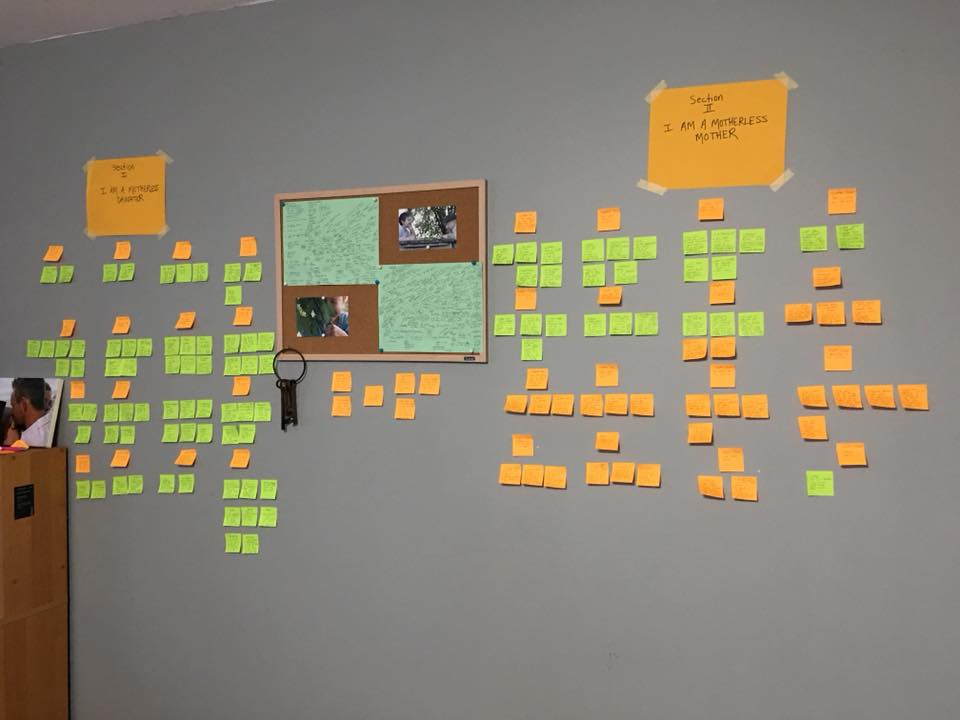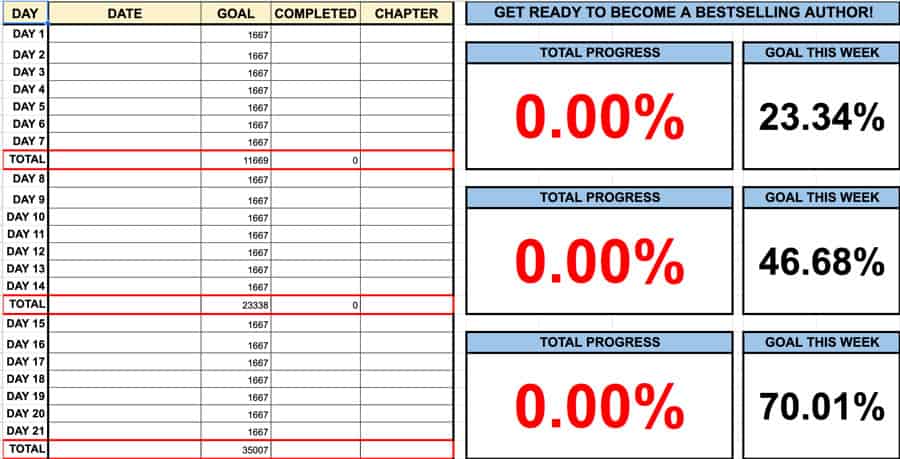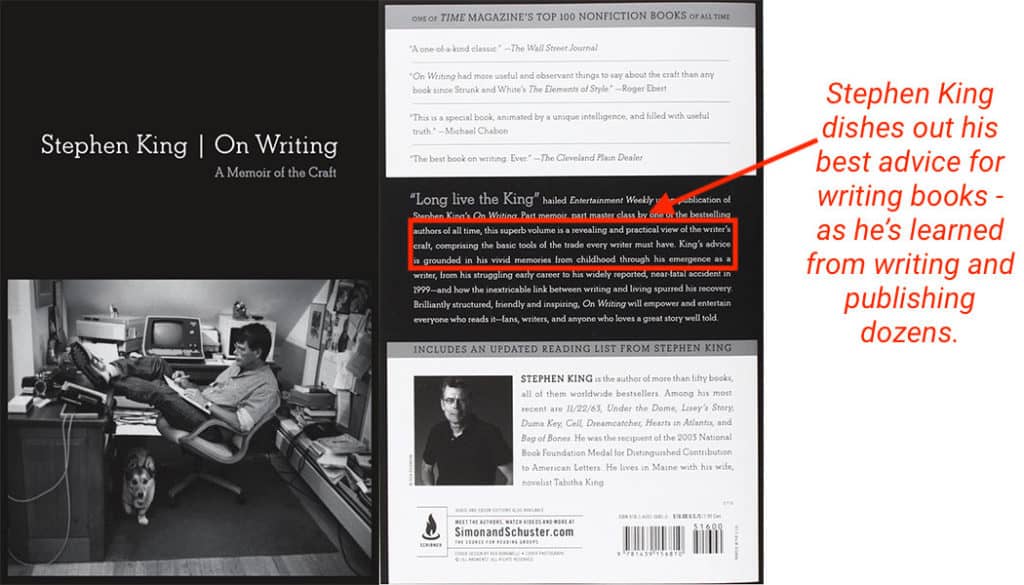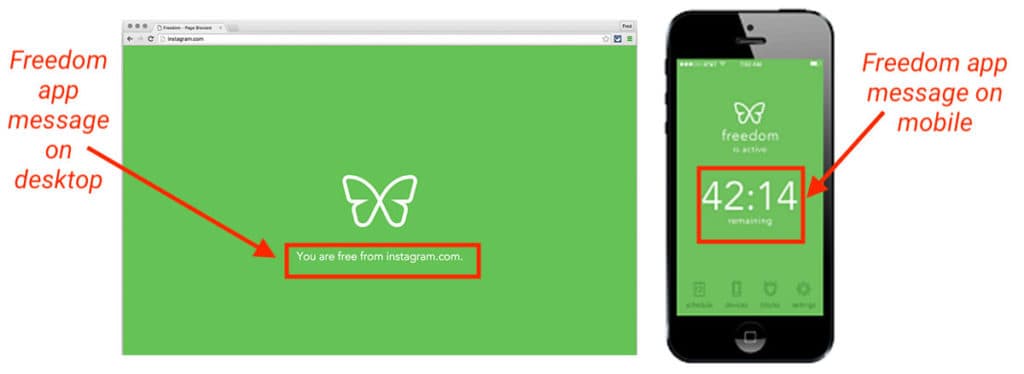Writer’s block can stump even the best authors in the world. Finding a solution isn’t nearly as difficult as they make it out to be.
But first, let’s uncover what it really is and how writer’s block can affect you.
Writing is hard enough on its own without writer’s block crawling into your brain and snatching up the words you really need to get that chapter done.
But the thing is, we’ve all been there before.
Every writer has experienced the struggle of forcing words onto a document one by one, dragging them kicking and screaming from the corners of your mind only to be left with a single sentence…one hour later.
And you don’t even really like that sentence.
This is how to overcome writer’s block
- Outline your book to beat writer’s block
- Research before you write
- Write more often to get over writer’s block
- Write despite writer’s block
- Read often
- Get moving
- Take a walk to get over writer’s block
- Talk about your writer’s block
- Gain inspiration elsewhere
- Put your phone away!
- Reread your writing
- Stop comparing your writing
- Think “big picture” to get over writer’s block
Being Informed is the Key to Beating Writer’s Block
If you want to cut right to the chase – and save some time – we can sum up what writer’s block is all about: not being prepared.
The more you know and understand about the publishing process, the less you’ll become blocked because you’ll have clear direction – one of the biggest reasons writer’s block encompasses your mind.
And to do that, we put together the free training you need.
What is Writer’s Block?
Writer’s block is what happens when writers and authors can’t think of what to write next and their minds are “blocked” from creating anything new or what they see as good.
It’s a nasty hindrance where you just can’t think of what to write no matter how hard you try and how much you challenge your mind – and a blank document quickly becomes your worst enemy.
Even the best authors out there still deal with this from time to time.
It can slow down your progress and end up taking much longer for you to write your book.
And with so many reasons for writer’s block to take hold – like insecurity, a lack of direction, or maybe even just a bad writing day – it can put you down and complicate the whole writing process.
Getting rid of it is not only the best thing for your book’s progress, but for writing faster and with more quality overall.
If you, much like the rest of us, have ever dealt with writer’s block, here’s how you can sever its annoying restraints for good!
What causes writer’s block?
Underlying issues like insecurity, a lack of direction with your plot, or even too many potential options for your book can cause writer’s block along with your creative “tank” being empty.
While this might sound bad, the best part about all of these is this: they’re preventable.
How to Overcome Writer’s Block by Prevention
Why do we wash our hands frequently during flu season?
That’s right. To prevent succumbing to debilitating illnesses.
And why do we get our oil changed regularly even when our vehicles are (seemingly) running well?
Right again! To prevent breaking down on the interstate and destroying our vehicles from the inside out.
That’s exactly why writer’s block is best beat by preventing the darn thing in the first place!
But how do you do that? It’s not like you can wash your brain or change its oil.
Well, not in a literal sense, you can’t. But you can try a few of these methods to keep your creative juices flowing like Niagara Falls in the springtime.
#1 – Outline Your Book
If there’s one technique that’ll prevent writer’s block the best, it’s having an outline.
These handy tools you didn’t pay attention to creating in school are essentially roadmaps for your book. They cover what happens next and what specific information you need to include.
There are a number of ways you can create your outline; using sticky notes, writing it in bullet points, or even using one that’s attached to a writing software.
How can you not know what to write next if you already have an outline telling you exactly that?
Many of us are stuck and blocked simply because we’re not sure what we should be writing next. Your imagination is at a standstill. You may just be divided between which path your book could potentially take.
Creating a thorough outline squashes those issues so you can write fluidly, quickly, and with quality.
When you’re not focused on what to write next, you can turn your attention to the quality of your writing while pumping out those words much faster, rendering writer’s block inactive.
Use a simple method like the one this student of ours used:

The post-it note wall is one of our favorite methods of outlining here at Self-Publishing School.
It allows you to consistently have eyes on what’s happening next when you’re writing – which can prevent writer’s block.
#2 – Research Beforehand
There’s nothing worse than getting into your writing groove only to freeze because you’re not 100% certain of the facts you’re putting down. Your mind goes blank and the words stop coming.
But since you’ve outlined your book, you know what you’re going to write before you even type that first word. Which means you know the research you need to do beforehand.
Having all the facts makes writing a breeze, and it can also kick-start some fresh ideas and a more imaginative way of thinking.
Here are some of our tips for researching to get rid of writer’s block:
- Compile a list of what you don’t know
- Highlight or make note of the most important parts
- Jot down why it’s causing you to have writer’s block
- Make a separate document for what you find
- Start researching by using .edu or .gov website (if your topics call for it)
- Write down everything you needed to know
- Look it over one last time to determine that it’s all you needed to research
- Start writing again to beat writer’s block!
Knowing more about a subject enables you to better explain it and writer’s block will run screaming for the hills.
#3 – Form a Writing Habit to Beat Writer’s Block
How often do you write right now? One day a week? A few days a week?
The more you write, the more effortless writing becomes. It’s like running, or exercising in general—the more often you do it, the easier it gets.
Not creating a writing routine those creative muscles. It makes it harder to think in an innovative way, and so you spend hours on a single page simply trying to find a better way to phrase something that’s not even critical to your story.
Keep those writer muscles strong by writing as often as you can – every day, even! If you’ve got the time to flex your creativity, do it.

Using a tracking sheet like the one above is a great way to schedule out your goals and then execute in a way that makes you WANT to write every day.
You can also schedule your writing time into your calendar to get alerts and notifications for you to stop and write. This also ensure people don’t schedule meetings with you during this time—so there’s no excused to get writer’s block in this case!

This particular sheet is from a NaNoWriMo blog post, but it serves as a writer’s block cure as well.
How do you get over writer’s block?
So you didn’t survive the preventative measures. That’s okay! We’ve all been there at one time or another and thankfully, we also managed to get through it.
Writer’s block may be fickle and frustrating, but it’s not without weaknesses.
All you have to do is find a way to break through to your true creativity and these are some of the best ways to destroy writer’s block and find the words again.
#1 – Write Anyway to Get Over Writer’s Block
I know what you’re thinking:
“But I can’t! I’m blocked!”
Most of the time, you may just be out of practice and need to find your rhythm again. Even if you’re struggling to get the words out, write them down anyway.
You may not like it and you may go back to change what you wrote later, but it’s the single best way to force writer’s block into submission.
It can’t win if you still write despite its grip on you.
So get those words down and after a little while, writer’s block will scurry back into the darkest corner of your mind and stay there. Finding your flow is sometimes all you really need.
Writer’s Block Action Step:
If you’re feeling blocked with your current story, perform a writing exercise where you just describe your day in prose – like you would writing. Make yourself the main character and craft your day like you would a story in order to gain that momentum again.
#2 – Read
Nothing can get your mind in a creative state more than reading. Picking up a book – any kind of book – and spending 30 minutes reading can spark your imagination and light a fire under you to get back to writing.
It’ll also motivate and inspire you to work harder to reach your goal of publishing a book.
When you’re holding someone else’s hard work in your hands, it’s proof your dream can come true. It’s justifying everything you’ve worked so hard for.
You can also research books about writing in order to learn more about the craft. This can often help with insecurity so you feel ready to write again.

Here are our top recommendations for book about writing to beat writer’s block:
- On Writing by Stephen King
- The Elements of Style by William Strunk
- On Writing Well by William Zinsser
- Write and Grow Rich by a collection of authors
- Zen in the Art of Writing by Ray Bradbury
That may just be the push you need to shove writer’s block from your mind and get back to your work.
Never underestimate the power of a good book.
Writer’s Block Action Step:
Grab your favorite book and spend 30 minutes reading it – or until you feel inspired and ready to write again. Trust us, it works!
#3 – Get Moving
Exercise isn’t just great for your body, it’s also powerful for your mind.
Scientifically speaking, exercising more not only increases your mood, but your creativity gets a boost as well!
It’s not always easy to coerce yourself into going for a run or even doing a few sit-ups at home when you just settled into your comfy couch to write, but if writer’s block is preventing you from actually getting any productive wordsmithing done, it could make a huge difference.
You can simply do some jumping jacks or take a quick walk around the block. Stimulating your creativity physically might just beat writer’s block for you!
Writer’s Block Action Step:
Get off your butt and do a few jumping jacks! Spend at least 3 minutes doing some sort of exercise, or even go for a full 30-60 minute workout before coming back to writing.
#4 – Take a Walk or a Drive
Mindless tasks help your brain get out of a funk because it frees it from focusing on your daily tasks, the insecurity you may feel about writer’s block, and even the pressure of finishing your book.
The more you can let your mind go, the more creative it becomes. Plus, a change of scenery never hurts the creative process.
Always looking at the same place or even sitting in the same spot to write can be an issue. It’s hard to come up with new ideas and think creatively when you never have anything new fueling your imagination.
Taking a walk or going for a short drive can help you recharge so you can kick that writer’s block to the curb and get back to writing again.
Writer’s Block Action Step:
Put on those shoes and hit the pavement. Take 10 minutes and observe your surroundings. Pick one thing you see outside and throughout the duration of your walk, craft a story in your mind focusing on that object.
#5 – Talk it Out
Are you struggling with something specific? Sometimes the confines of your own mind isn’t the best place to work through your writer’s block.
You may be the type of person who needs to verbalize your concerns in order to work through them. And that means you need to get up and actually speak to someone (or even yourself!) about what you’re struggling with.
Writer’s block feeds on uncertainty. The more you question what you’re doing, the worse it’ll get.
By talking through it out loud, you’ll have a new perspective. This will often offer fresh solutions that’ll make you eager to get back to that keyboard.
Writer’s Block Action Step:
Try to get your critique partner on the phone or active via messenger. Tell them what’s going on and even ask if they want to take a look at where you left off to bounce ideas off each other.
#6 – Find Inspiration
There are a lot of ways you can go about getting inspired again. While inspiration isn’t necessarily required to write, it certainly helps your drive and imagination.
These are a few ways to get rid of writer’s block if you feel lost:
- Research related images on Pinterest
- Read through your outline
- Read a related book
- Create a vision board for your book
- Create a list of goals for after your book is complete
- Listen to an influential Podcast
- Watch or read successful author interviews
- Subscribe and keep yourself updated with the best websites out there
Inspiration is specific to each person. Meaning, it may take a few attempts before finding the method that works best for you.
As an example, whenever I feel stuck or blocked when writing, I open my Pinterest board dedicated to my book and often find this helps.
Here’s an example of what a board for your book may look like in order for you to beat writer’s block.

A Pinterest board like this really just serves to bring your book to reality. When you see what it could look like in the minds of others, it helps you get back on the writing train.
Anything that rouses your excitement to write again tramples that pesky writer’s block.
Writer’s Block Action Step:
Get on Pinterest or just Google and look up images that are reminiscent of your book, theme, or story. Compile a folder or board of these and notice the details that make them related to your book.
#7 – Put Your Phone Away!
Are you really experiencing writer’s block or is that “block” in the shape of your phone?
A lot of us love to use the excuse of “writer’s block” in order to justify spending far too much time perusing our social feeds.
While there’s nothing wrong with wanting to catch up with friends and stay in the know, sometimes it can drag you away from achieving the goal of writing your book.
What you need may not be a cure for writer’s block at all, but something completely different: self-control.
There are even apps for this now! Going to your phone every now and then can be a bad habit, but apps like Freedom help you stay on track.
Freedom works by blocking your ability to access different websites or apps on your phone. This is what it looks like when you attempt to go online or open an app that you have disabled through Freedom:

If you struggle to focus on the task of writing and you somehow always find your phone open to a mind-sucking app, it’s a good idea to switch your phone to silent and shove it aside for the remainder of your writing time.
This alone might be enough to get rid of what’s really blocking your stream of words.
Writer’s Block Action Step:
Put your phone in a completely different room and on silent. This will stop you from opening your phone just to scroll and will block any other messages from distracting you until you’re done writing.
#8 – Reread Your Writing
As mentioned above, getting into a rhythm is essential for keeping writer’s block at bay. When you suddenly can’t come up with the right words to describe what’s going on in your mind, it could be because you’ve lost momentum.
Taking some time to reread your previous writing can help by putting you in the same frame of mind you were in the last time you had to stop writing.
This will catapult your brain back into the right place so you can make progress and write easily again.
Writer’s Block Action Step:
Head back to the beginning of your current chapter (or the beginning of the previous one if you’re just starting a new one) and just read. Allow your mind to get lost in your own words. You can go further back to read if needed.
#9 – Stop Comparing Your Writing
“Comparison is the thief of joy.”
Theodore Roosevelt knew as much and we’d wager to bet it also steals any progress you could be making.
The more you worry about how your writing compares to someone else’s (who usually has much more experience than you), the harder it will be to write anything.
That’s where writer’s block comes from in this instance.
You’ll find fault with every word and every sentence even though your work is fantastic the way it is.
Remember that nobody can write the story you are. Your voice and perspective are what makes your book unique in the first place. Changing this will only pull you further away from your identity as a writer.
And most importantly, comparing your writing to someone else’s isn’t productive or helpful for anyone.
Writer’s Block Action Step:
Write down 10 things you love about your writing. Get specific and mention why you love your dialogue or why your theme is so unique and special. Recognize your own strengths and then say them out loud to yourself.
#10 – Think of the Big Picture
Writing and publishing a book can be a long, hard process. Sure, the first week is exciting and you want to write all the words but that motivation probably won’t last through the entire process because it is work, after all.
You’ll have rough days – including moments when writer’s block takes hold. What’ll get you through them the easiest is taking a step back and thinking about the big picture.
Ask yourself some of these questions to get rid of writer’s block:
- Why did you want to write this story?
- How will it benefit you?
- How will it benefit others?
- What message do you hope others receive?
- What value does this hold in your life?
Pushing yourself to view your writing in terms of the end goal will not only motivate you to get started and put some words down, but it’ll also help remind you of your true purpose for telling this story.
Writer’s Block Action Step:
Write down the answers to the questions above in detail. Then read them out loud to yourself, really hear your own purpose for this book and that can often unclog your writer brain.
How Long Does Writer’s Block Last?
Writer’s block lasts as long as you allow it to, which can often be days or even weeks if you don’t act on it and try these preventative and curing methods.
Ultimately, the longer you put off dealing with the underlying causes of writer’s block, the longer it will last.
Face your writer’s block head-on in order to get rid of it for good and get back to creating something that will resonate with people from all over.